About one third of severe alcoholics are susceptible to alcohol withdrawal seizures. These terrifying events result from massive alterations in neurotransmitter levels and brain receptor sites caused by prolonged drinking.
In this article, we will discuss the biochemical causes. We will then review some common symptoms of severe withdrawal, including seizures, and I will let you in on an experience I once had with DT’s.
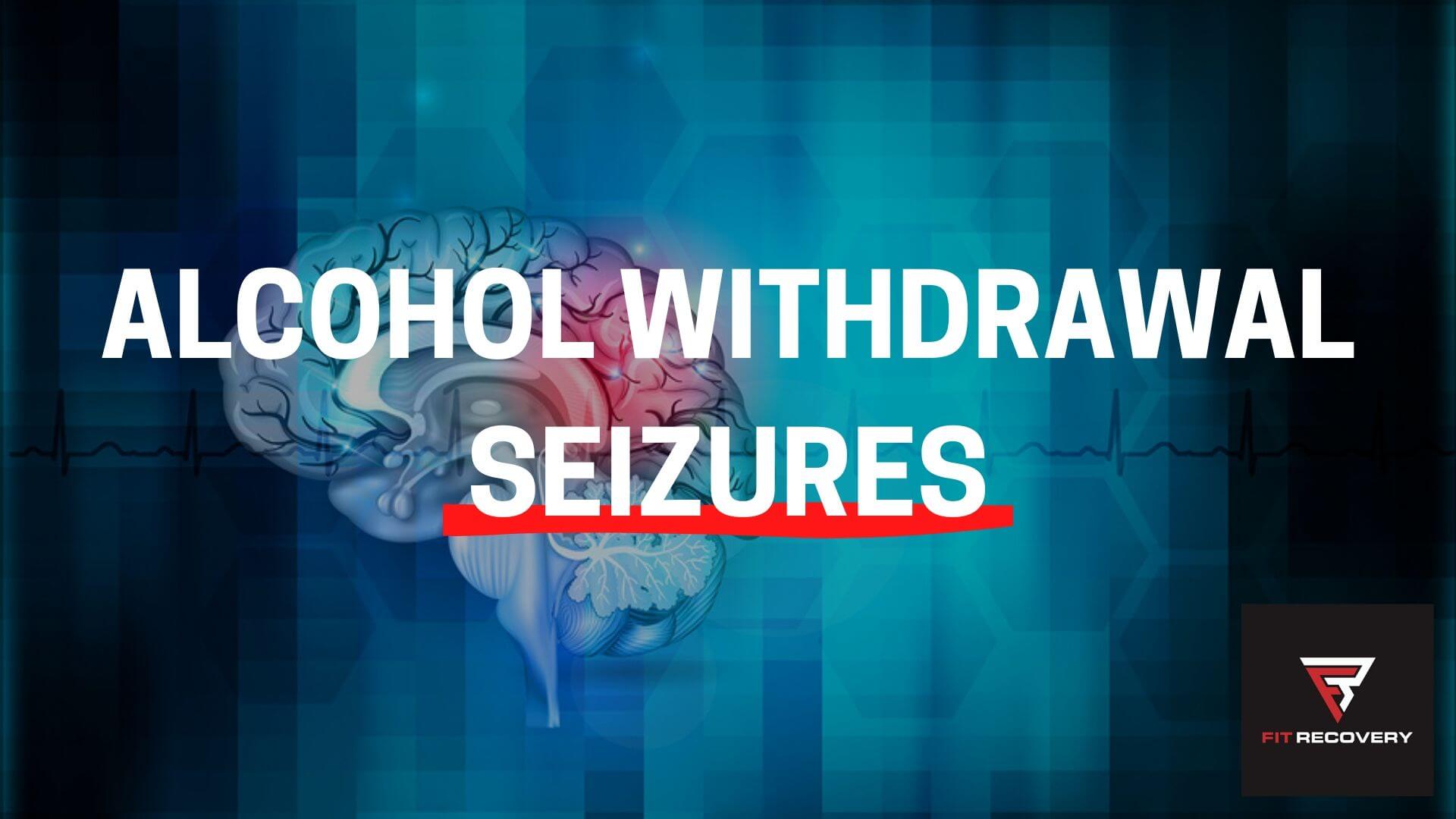
Finally, we will cover available treatments and medications, and end with a game plan of sorts for the severe alcoholic who wants to change his or her life.
What Causes Alcohol Withdrawal Seizures?
The most important neurotransmitters involved in this phenomenon are GABA and glutamate. GABA is the brain’s primary calming neurotransmitter. It must exist in balance with glutamate, which is a neurotransmitter that increases electrical activity in the brain.
Alcohol stimulates GABA receptors, and chronic drinking causes the brain to decrease the amount of GABA it naturally produces. Moreover, it reduces (or “downregulates”) the number of receptors that GABA binds to.
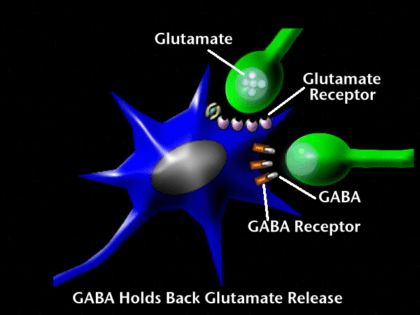
Conversely, chronic drinking causes the brain to increase glutamate levels (and “upregulate” receptor sites) to compensate for alcohol’s suppression of glutamate. This leads to more electrical activity in the brain.
Let me put this in plain English. If you are an addict, your brain has learned to rely on this substance for a calming effect instead of its own natural GABA, and ramped up electrical activity to keep you conscious while you hammer drinks.
Therefore, when you stop drinking suddenly, your brain freaks out. It has adapted to the presence of liquor to keep you alive, and reverting to its former state cannot be achieved overnight. Your calming chemical is depleted and electrical activity goes through the roof.
In severe cases, this situation can result in seizures.
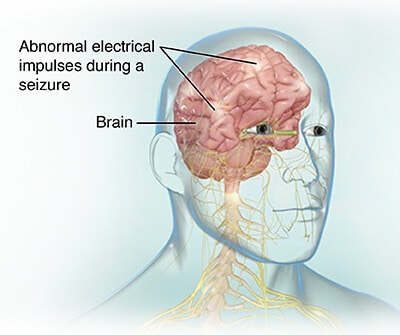
Will I have a seizure if I stop drinking?
If you are mildly or even moderately dependent on alcohol, you are not likely to experience seizures. They tend to occur only in cases of severe addiction.
Research indicates that just as there is a genetic basis for alcoholism, there may also be a genetic predisposition for. (source)
People who are severely addicted to alcohol tend to suffer from the worst withdrawal symptoms, including seizures. Symptoms of withdrawal, listed from relatively minor to severe, include:
- A general sense of unease
- Fatigue
- Insomnia
- Shakiness
- Depression
- Increased blood pressure
- Sense of impending doom
- Hypersensitive reflex responses
- High fever
- Full body twitching
- Brain zaps
- Auditory, visual, or tactile hallucinations
- Delirium Tremens (DT’s) – confusion, hallucinations, and seizures that can last up to a week (untreated)
If you are dependent on alcohol and have not experienced seizures, don’t consider yourself lucky just yet.
Thanks to a brain phenomenon called kindling, you can increase your probability of experiencing this phenomenon by continuing to drink – and, more precisely, by experiencing repeated episodes of withdrawal.
In animal models, repeated episodes of withdrawal lead to an increase in the frequency, duration and severity of seizures. They can be fatal, but modern medications like benzodiazepines have made detox much safer than in the past.
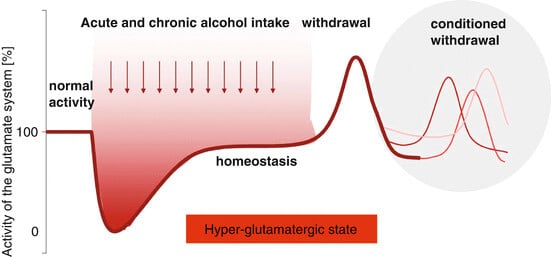
Can your body go into shock when you stop drinking?

Generalized tonic-clonic seizures, involving uncontrollable jerking movements, are the most common of seizures that occur with severe withdrawal. These are often referred to as Grand mal seizures.
The “tonic” phase of a grand mal seizure involves around 20 seconds of unconsciousness and involuntary muscle spasms. This leads into the “clonic” phase, which involves convulsions that can repeat for a few minutes.
I knew an accomplished executive who had a grand mal seizure while drinking in a bar. He was severely addicted, and on this occasion he did not drink enough to maintain temporary GABA/glutamate stability. When he had the seizure, he fell off of his barstool, hit his head on the floor, and convulsed for over a minute.
If you or someone you know is experiencing this, it’s important to get to a doctor immediately. Damage to the brain and other organs can occur during these seizures.
How long after stopping drinking can you have a seizure?
For people who are predisposed to them, episodes typically begin 1-3 days after alcohol cessation. (source) After the 72 hour mark, withdrawal seizures are possible but relatively rare. (source)
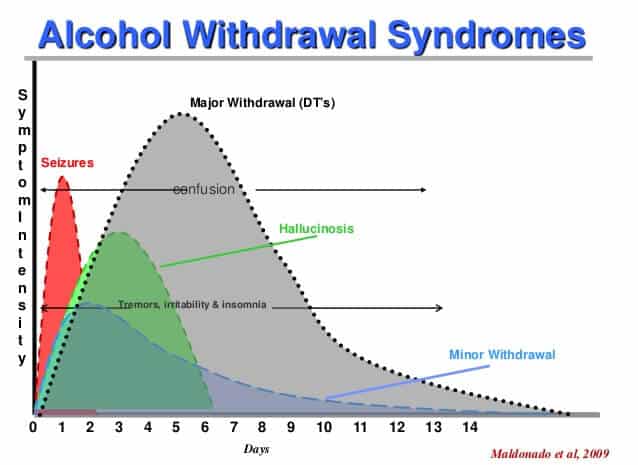
One of the primary symptoms of DT’s is confusion. This means that it can be quite difficult to self-diagnose these symptoms. However, people who experience these episodes often report sensing an “aura” beforehand – a subjective sensation or emotion that occurs just before the seizure.
My Experience
I recall one particular withdrawal episode, a few months before I quit drinking, in which I unwisely decided to quit cold turkey after a massive week-long binge. At the time, I knew nothing about anything I write about on this website.
Come on Chris, man up and get it together – you’ve got to go in for work on Monday. Tough it out.
After spending an entire weekend paralyzed by confusion and anhedonia on my couch, I decided to transfer to my bed. Since it had been a few days since I had drank, I knew I would not sleep.
But I had no idea that my perception of reality was about to become totally skewed:
- I broke into a cold sweat
- I began involuntarily twitching
- I heard muttering, cackling, and screaming that I knew could not be real
- I saw dark figures leaping between doorways
- I felt brain zaps
- I felt violent sensations on the surface of my skin
- I felt a sense of impending of doom

After recounting this experience to a doctor years later, I was told that if I had not had a seizure and simply blacked out, that I had experienced DT’s – and was probably about an inch away from experiencing a seizure.
To this day, that evening was the most bizarre and terrifying experience I have ever had. I created Fit Recovery in part because there are too many dry medical accounts of withdrawal on the Internet, written by people who have never experienced what they are writing about.
When I had DT’s, what I should have done was see a doctor immediately and at the very least, begin a tapered regimen of benzodiazepines. Modern medicine can prevent DT’s and seizures! Don’t suffer needlessly.
There are also effective strategies to kill addiction for good!
Treatment
If a person is experiencing severe withdrawal and no medical treatment is available, sometimes the only immediate solution is to drink just enough to ease symptoms. Of course, this is a temporary solution that kicks the can down the road. But it is better than risking an episode.
With that said, I will repeat what I said earlier…
If you’re experiencing an episode, get to the ER immediately.
Most hospitals in America will use benzodiazepines to prevent or reduce symptoms of acute alcohol withdrawal. This process can take up to a week, and doses will be determined by a doctor based on individual characteristics.
You can read more about the use of benzodiazepines for withdrawal in these articles:
In recent years, doctors with expertise in addiction treatment have also used gabapentin and Topamax to successfully manage withdrawal symptoms.
Magnesium is also known to reduce the severity of withdrawal symptoms. (source) A select few treatment centers use megadoses of magnesium, along with other nutrients like vitamin C, to detoxify the body and reduce the likelihood of an episode.
How to prevent seizures due to withdrawal

After you detox, conquering alcoholism should be your number one priority for a long time to come! Due to kindling, your likelihood of experiencing seizures if you drink again rises – your slate is not wiped clean.
Fortunately for you, it’s possible to leave addiction in the past.
You can prevent future episodes by proactively repairing your body and brain.
If you take the time to bookmark them, the following articles will prove very useful for you:
- Top 20 Supplements For Detox And Recovery
- Alcohol Withdrawal Timeline – And Body Repair After Quitting Drinking
- Top 10 Remedies For Sleep After Quitting Alcohol
- Top 10 Ways Exercise Rewires Your Brain
- 7 Ways Ben Affleck Could Transcend Alcohol Addiction
There are MANY more enlightening articles on Fit Recovery, so I suggest subscribing to my email list at the bottom of this article and staying posted for more!
Conclusion
In this day and age, these seizures are totally unnecessary. They can and should be prevented with proper medical care. Ideally, it’s best to prevent them by tackling problems long before they reach this level!
Many people who write to me each day have been able to quit drinking long before experiencing DTs. I’m confident that the information at your disposal, on Fit Recovery, can help to save your life.
With enough internal resolve, anyone can conquer addiction forever.
If you have any questions, please leave them in the comment box below.

Authors
-
Chris Scott founded Fit Recovery in 2014 to help people from around the world dominate alcohol dependence and rebuild their lives from scratch. A former investment banker, he recovered from alcohol dependence using cutting-edge methods that integrate nutrition, physiology, and behavioral change. Today, Chris is an Alcohol Recovery Coach and the creator of an online course called Total Alcohol Recovery 2.0.
View all posts -
Dr. Ken Starr is board certified in both Addiction Medicine and Emergency Medicine, and diplomate of the American Board of Addiction Medicine. In addition to his work as the Addiction Medicine Director for Fit Recovery, he operates Ken Starr MD Wellness Group in Arroyo Grande, CA. His clinic offers advanced drug and alcohol detox methods, long term recovery facilitation, and IV nutritional programs including NAD+ therapy.
View all posts






Hello, my 37 yo brother had a seizure yesterday, he stayed in the hospital overnight, they ran tests, everything came back normal and they sent him home. He still has some shakes, I am wondering if it is possible he could have another seizure? And what can we do to prevent it from happening again?
Hi Vick, the best way to prevent it from happening again in the short-term is to abstain from alcohol. There’s lots of great info on this site and in my online course about ways to optimize brain health long-term. Best of luck to you both!
I am 2 weeks into withdrawal. I started out going dry at home on my own and experienced hallucinations and seizures and wound up in the hospital. i am counseling with Tana and taking megadoses of vitamins in line with those that Fit Recovery lists. I still get tired easily and sometimes nauseated. Sat. I vomited. My toes and fingers get numb and tingly. My eyesight gets quite blurry sometimes; then improves a little. I have too many responsibilities at home to go into a long term care facility. I am frustrated, but taking time to rest and exercise.
Hindsight2020
Thank you for sharing Nancy – I hope that you’re feeling better, and be sure to get enough rest. In case you’re not taking it, you might look into milk thistle to support your liver during detox. At 2 weeks alcohol-free you should begin feeling better, especially with supplementation, but if things don’t get better then definitely check with a doctor to see if anything else is going on. Very glad to hear that you have Tana on your side. Best of luck and keep it up!!
My son had an alcohol withdraw seizure last week and in the process fractured his spine in two places and nearly bit his tongue off. He is currently in the hospital on detox meds and Ativan. He still will not admit he has a drinking problem and will not believe he had a seizure. I am afraid of them releasing him soon and him going back to abusing alcohol and this happening again. He doesn’t live with us so we can not monitor him, I don’t know how to convince him to get help when he doesn’t see a problem.… Read more »
Hi Joanne, I’m sorry to hear this but glad he’s ok at the moment. That’s a tough situation, but many people have written to me about the progress of loved ones after giving them a copy of my book, Drinking Sucks. I myself waited YEARS to get help because of how dark and depressing mainstream recovery culture can be. Perhaps show him that there are alternatives!
I had a question if u had a seizure from alcohol and have stopped drinking and have been clean for one month today. Is it likely to have more seizures. As long as I stay clean and sober and not drink again.
Hi Travis, good news – seizures are very unlikely if you haven’t drank in over a month! The post-acute withdrawal symptoms I experienced after a month without alcohol were still uncomfortable though. Ultimately, supplements and exercise and diet changes helped a ton.
Your information is valuable and hospitals need to be aware of this extremely complicated process! I have sat through at least 8 medical detoxes with my 29 year old son. The first time, I trusted the hospital to take care of him but they let him go just as he was starting to hallucinate (because he seemed normal). He left, wondered around the city at 3 in the morning, got home and started to break his windows with a ball bat because he thought he saw people inside trying to kill him. The neighbors called the ambulance and he was… Read more »
Thanks for sharing this Pam, your son’s experience is all too common. It’s shocking that the science of addiction is not covered more thoroughly in medical school and continuing education for hospital staff. Hope he’s ok now!
I hope your son is well now. I was given antiseizure med, but that is all.